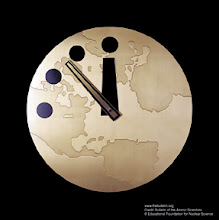Elaborations
I was CC'd on an email promoting this blog, just the other day, and was amazed that my publicist, the incomparable David Marshall, thinks of this site as "Personal Rants" and it's sister as "Literary Merit." Now barring the fact that I would be in a rare mood to describe anything I do as having literary merit (and it is the rarity of those moods that leads me to proclaim, when I'm in one, my own awesomeness), what struck me as interesting is that this site is given over to personal rants. Now, this isn't about ranting. This is about exploring in prose the phenomenon I encounter in day to day existence. Not a diary, as a diary is less planned, and everything I write here is planned, and (poorly) edited.
Now. After saying that, I have to prove it. So here is a post Trisha free. Whole new years resolution, and that. So I am going to give brief overviews of the writers that interest me right now, and why they interest me.
Nassim Taleb, The Black Swan
Ostensibly a book on the consequential, improbably, unpredictable event, this book ends up being a philosophical treatise of a rare breed- it actually has an application for decision making. Most philosophy, these days, is either focused on whether or not decisions exist, determining the linguistic implications of decisions, or retroactively justifying decisions because, well shit, one had to do something, even if that something is nothing.
Taleb uses as a starting point a division, between the world that physics, statistics, and probability describe, and the world that defies such description- what acts in a manner predictable, with regular distribution, and what doesn't. From here, Taleb takes us on a tour of ways we confuse, and mis-inform ourselves, by thinking all of our world fits predictable models. He takes a dash to the problem of induction, but mostly focuses on the inadequacy of predictive models- basically he holds that we don't have the math to predict events, while we continuously think we do.
Where I think Taleb gets interesting, however, is on the topic of cause and effect, what he calls the "narrative fallacy." Any given effect has an infinitude of causes, and that it is in our nature to overlook this fact, and focus on a single cause. Because we think backwards, we think that things like Pearl Harbor, and the Stock Crash in August, were entirely predictable. And people did in fact predict those things- in fact, for every single action through history, someone has probably predicted it- but if you have a large enough population of speculators, one will be right, regardless of their level of expertise. In retrospect, we call these people "visionaries," when all of their incorrect compatriots also were visionary. We should merely call those accurate predictors "lucky.
Strident and repetitive, Taleb is interesting, and provacative, to the point of being totally inconsequential. Which is, ultimately, our loss.
Iain M. Banks Matter
Iain Banks writes claustrophobic, confused literary fiction that funnels the reader into small, small people with their small, small tragedies and sins. Iain M. Banks, the very same author, with an addition of a middle initial, writes expansive space opera, dripping with socio-political commentary, all structured around character stories decompressed from Shakespeare and shaped to a galactic scale.
In which case, this book is Banks stealing from Hamlet and Titus Andronicus, a family tragedy, siblings striving for vengeance, exiles and ghosts, in a novel that takes every opportunity afforded it in this maligned limb of fiction to reflect back on itself, to afford every opportunity for a spark of wit or a clever inversion. Banks is quality.
Jules Renard Journals
The back of my copy says that Susan Sontag once gave this book to someone, who gave it to someone else. Doubtless someone with a PhD would recognize either of those two somebodies. Me, I just flipped through it to know I wanted it. Renard's journals are not diaries. They are sketchbooks, quick pictures framed in prose, most of which are dead ends, some of which may have grown in his imagination to have become the novels that now no one reads.
What's interesting about Renard is not who has read him, but what he hasn't written. Every page has a dozen good, abandoned ideas. It's probably the most inspiring graveyard I've ever seen.
So that's what I'm reading. Yes, I know I'm brilliant. I squander potential like you throw away candy wrappers.
Labels: FUCK HEALING.


0 Comments:
Post a Comment
<< Home